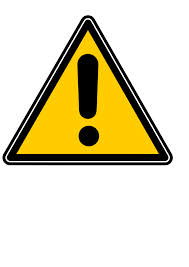An Overview of Determiners
A determiner is a word that allows us to "zero in" on the particular nouns we are referring to. For example, is it specific? (the book); unspecific? (a book); does it belong to someone? (my book); is it in front of you? (this book)?; how many are there? (two books). The main types we consider in this guide are articles (the, a, an), possessives (my, your his, her, our, their), demonstratives (this, these) and quantifiers (many, few, all, some)
Articles
Articles allow us to indicate how specific a noun is. In English, the article doesn't change according to gender or number, e.g.: the boy, the girl, the boys, the girls. English has a definite article, the, and an indefinite article a. Note that the indefinite article becomes an before vowel sounds, e.g.: a book, an apple.
Presence/absence of Articles
present: before singular count nouns, an article is required, e.g.: I bought a computer; I know the instructor; He has an umbrella.
Mass nouns may or may not be preceded by a determiner, e.g.: There is sand in my shoe or There is some sand in my shoe.
absent: before plural nouns in general context, e.g.: I like books (but I like the books that you bought). Note that indefinite articles are not used before mass nouns (e.g.: do not write There is a sand in my shoe).

* You need to use an indefinite article before professions, e.g.: She is a doctor.
* Don't write the before the word both, e.g.: I will take both of them.
Possessive Determiners
As their name suggests, possessive determiners are placed before nouns to show who they belong to. English possessive determiners are illustrated below:
my, your, his, her, its, our, their.
When indicating possession on a noun, use 's, e.g.: The girl*'s* book.

* Use a possessive determiner before body parts, e.g.: I brushed my teeth.
* Don't confuse the possessive determiner their (e.g.: their house) with there (location) or they're ("they are").
* Don't use his or her with inanimate nouns, e.g.: Don't judge a book by its cover.
* Don't confuse the possessive determiner its (The story will soon reach its end) with it's ("it is").
* Don't confuse possessive 's with plural s.
Demonstrative Determiners
Demonstrative determiners are used to refer to nouns that are present when talking, or for making a contrast between two different nouns. English uses the following ones: this, that, these, those. For example, I want this one, not that one

* Make sure the demonstrative and the noun agree for number, e.g.: I like these people and NOT I like this people.
Quantifiers
Quantifiers are determiners that describe the quantity of nouns they precede, e.g.:
all the people;
many friends;
few animals;
every child;
some water;
a lot of ideas
Much versus many?
Much is used before mass nouns (e.g.: love, water, sand, fun, money, etc.), while many is used before plural count nouns (people, books, friends, dogs, houses, etc.). For example, There's too much water in the pool, I have many friends at school.

*Be sure to write a lot as two words.
*Don't use much before count nouns, e.g.: She has many books and NOT She has much books.